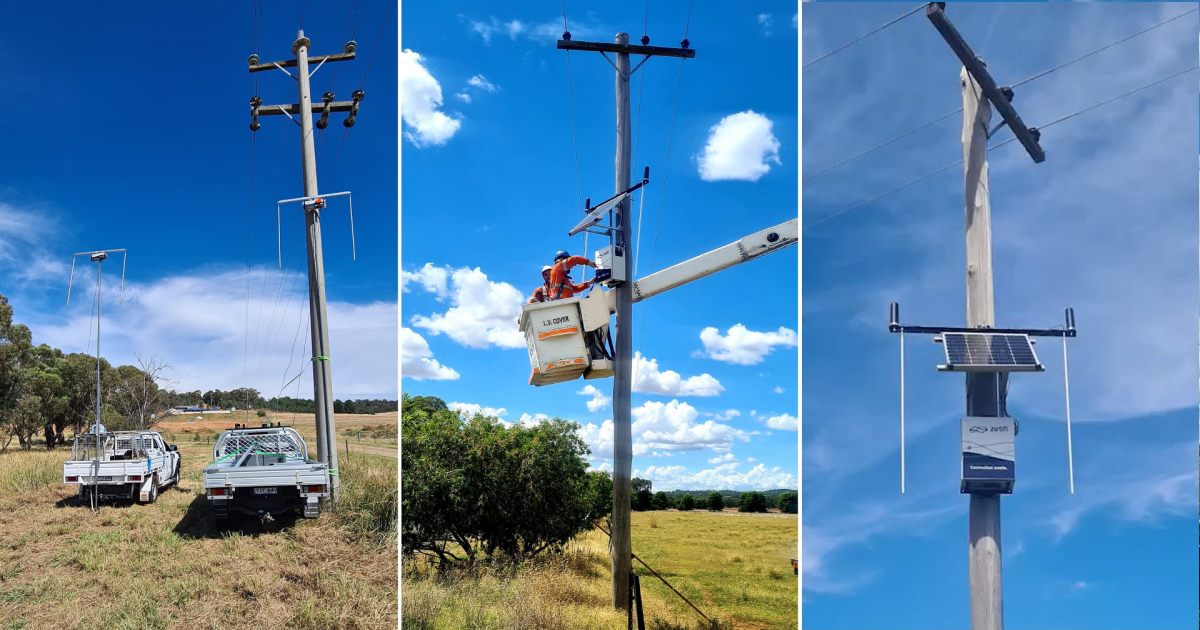
A company working to bring better connectivity to Australians living or travelling out the back of beyond has scored another injection of NSW Government funding.
On Thursday, NSW Minister for Science, Innovation and Technology Alister Henskens announced 10 projects will receive funding through Phase 2 of the current round of the Small Business Innovation and Research (SBIR) program. SBIR is an initiative designed to help small businesses and NSW Government agencies team up on developing solutions to complex problems.
“NSW has a highly innovative small business sector and by supporting these businesses to develop home-grown solutions, we can not only improve social and environmental outcomes, but boost our innovation economy by creating high-value jobs and growing new high-tech industries,” said Minister Henskens.
One of the companies granted funding is Zetifi, which was founded in 2019 to overcome the connectivity challenges faced by farmers and rural residents.
Under the Phase 2 SBIR support, Zetifi is to develop a proof of concept for its ZetiNet platform. ZetiNet consists of solar-powered wireless network devices and systems that can be rapidly deployed on existing power poles or as standalone “pods”; promising cost effective connectivity where mobile operators cannot reach.
The Zetifi team were pretty pleased with the news of funding, but the amount received wasn’t mentioned1.
“ZetiNet reduces the reliance on mobile networks as the main, or in some cases only, communications option for emergency and other essential services,” stated the company. “It’s our way of describing the package of hardware, software and networking innovations needed to quickly deploy a network of off-grid small cells so that passers-by can use long-range Wi-Fi to access data from feint (sic) mobile signals or satellites that would otherwise be invisible to them.”
Earlier this year, Zetifi completed a $100k feasibility study of its platform, funded under Phase 1 of the SBIR. The Wagga Wagga based company has already established some street (or dusty road) cred in rural connectivity tech. Existing products in its portfolio include:
- ZetiRover: a roaming Wi-Fi hotspot for vehicles and farm machinery.
- ZetiCell: a connectivity solution for farms and rural and remote communities with limited mobile coverage. Drawing a maximum of 24 watts, ZetiCell is offered with battery backup and solar panel options.
- ZetiBase: an indoor solution combining data connections from multiple 4G carriers or satellite internet services to improve connectivity reliability.
Last year the company expanded into the US market with the opening of a satellite office in Rochester, New York. Among its various project partners are Essential Energy, Motorola Solutions, Telstra, SpaceX and Charles Sturt University.
Following this proof-of-concept phase, NSW Government agencies will consider procurement of successful SBIR projects.
“The NSW Government is supporting this work for its potential to improve service delivery right across the state, in particular those delivered by the NSW Telco Authority,” says Zetifi.
Trivia: Australia’s CSIRO lays claim to inventing the wireless LAN (WLAN), patenting the technology behind it in 1996. Aussie, Aussie, Aussie, Oi, Oi, Oi and all that.
Trivia: According to Energy Networks Australia, more than 7 million power poles are in place across Australia.
Footnotes
- SBIR offers up to $1.1 million in grant funding to develop and commercialise a new technology or service. ↩

 RSS - Posts
RSS - Posts



Speak Your Mind